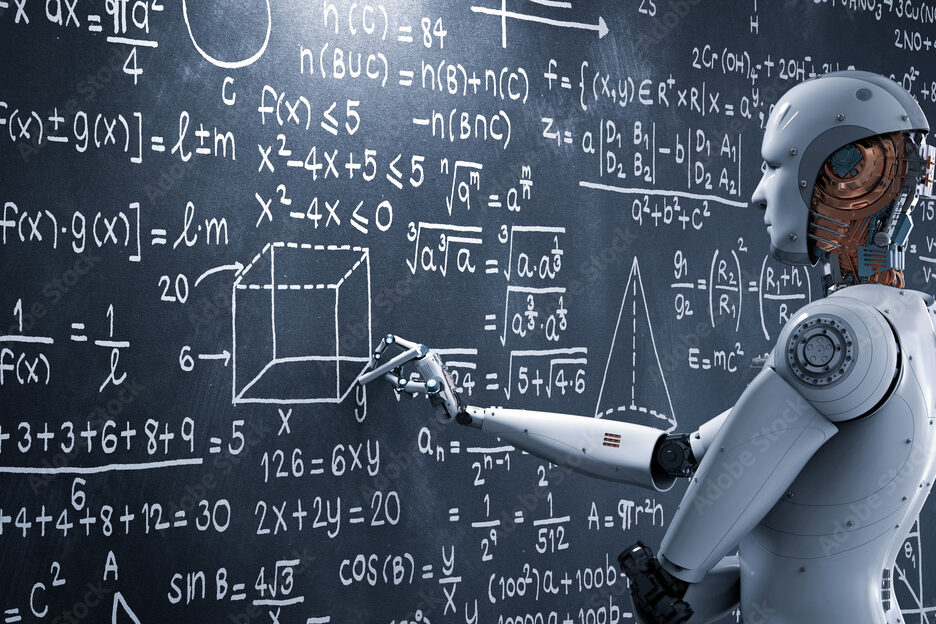In a rapidly evolving world driven by technology, the future of education is being reshaped by Artificial Intelligence (AI). AI is not just a buzzword; it’s a transformative force that holds immense potential to enhance learning outcomes, increase accessibility, and revolutionize the way we educate. In this blog, we’ll explore the various ways AI is impacting education, from personalized learning to addressing global challenges.
1. Personalized Learning: Tailoring Education to Individual Needs
One-size-fits-all education is becoming a thing of the past, thanks to AI’s ability to personalize learning experiences. AI algorithms analyze students’ strengths, weaknesses, learning styles, and pace to deliver customized content and activities. This fosters a deeper understanding and retention of knowledge.
2. Adaptive Learning: Keeping Students Engaged and Challenged
Adaptive learning platforms, powered by AI, adapt the difficulty level of content in real-time based on a student’s performance. This prevents students from getting bored or frustrated, ensuring they are continuously challenged at an appropriate level.
3. Intelligent Tutoring Systems: Learning with Real-time Guidance
AI-driven tutoring systems provide instant feedback and guidance on various subjects. Students can access explanations, answers to questions, and practice materials, significantly improving their learning experience.
4. Automating Administrative Tasks: Empowering Educators
AI streamlines administrative tasks like grading and scheduling, allowing educators to focus more on teaching and providing individualized support to students.

5. Enhancing Accessibility: Bridging the Gap
AI-driven tools make educational materials more accessible for students with disabilities. They can also translate content into different languages, promoting inclusivity and expanding access to education worldwide.
6. Predictive Analytics: Early Intervention for Success
AI analyzes data to identify students at risk of falling behind or dropping out. Early intervention strategies can be implemented to provide the necessary support, increasing student success rates.
7. Virtual Classrooms and Remote Learning: Learning Beyond Borders
AI-powered virtual classrooms and remote learning platforms have become essential, especially during crises like the COVID-19 pandemic. These platforms provide interactive, engaging, and synchronous learning experiences, irrespective of geographical boundaries.
8. Curriculum Design: Staying Relevant
AI helps educators design and update curricula by analyzing the latest research and trends in education. This ensures that educational content remains current and aligned with industry needs.
9. Language Learning: Personalized Language Instruction
AI-driven language learning apps offer personalized instruction, including speech recognition and accent correction, making language acquisition more effective and engaging.
10. Skill Assessment and Credentialing: Lifelong Learning Support
AI assesses skills and competencies, aiding in credential verification and continuous skill assessment throughout one’s career. This supports lifelong learning and career advancement.

11. Career Guidance: Informed Decision-Making
AI provides personalized career guidance based on students’ interests, skills, and market demand. This helps students make informed decisions about their education and career paths.
12. Data-Driven Insights: Informed Decision-Making
AI generates insights from educational data, helping administrators and policymakers make informed decisions about curriculum improvements, resource allocation, and teaching methodologies.
13. Gamification and Engagement: Learning Made Fun
AI-powered gamification techniques make learning engaging and fun, utilizing virtual reality (VR) and augmented reality (AR) to create immersive educational experiences.
14. Teacher Support and Professional Development: Empowering Educators
AI assists teachers with resources, lesson plans, and recommendations for professional development, enhancing their teaching capabilities.
15. Efficient Content Creation: Saving Time and Resources
AI automates the creation of educational content, such as textbooks and quizzes, saving educators time and ensuring content remains up-to-date.
16. Ethical Education: Responsible Technology Use
AI can be used to teach students about ethics, including responsible AI use, data privacy, and the ethical implications of technology.

17. Monitoring Student Well-being: Mental Health Support
AI monitors student behavior for signs of stress or mental health issues, enabling timely intervention and support.
18. Lifelong Learning: Continuous Skill Development
AI supports lifelong learning by recommending skill development opportunities throughout one’s career, ensuring individuals stay competitive in the job market.
19. Global Learning Communities: Embracing Diversity
AI connects learners globally, fostering diverse perspectives and cultural understanding.
20. Continuous Feedback: Tracking Progress
AI provides continuous feedback on student performance, allowing for ongoing improvement and progress tracking.
Conclusion
The future of education is undoubtedly intertwined with AI. As we harness the power of AI to personalize learning, improve accessibility, and address global challenges, we must also tread carefully, ensuring that technology remains a tool that complements, rather than replaces, the human touch in education. By striking this balance, we can unlock the full potential of AI to create a brighter and more equitable future for learners around the world.
